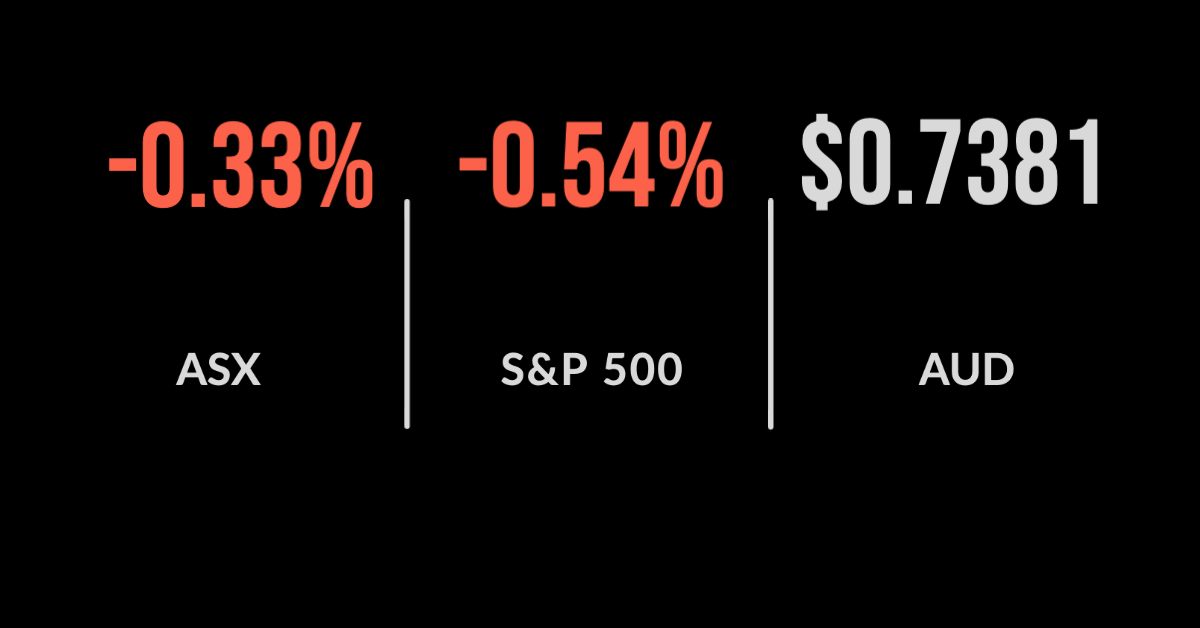ASX sags, but July marks 10th straight monthly gain
Rough finish to a flat week, materials hit more records, NAB’s buyback
The ASX 200 (ASX: XJO) finished 0.3% lower on Friday, ending the week down just 0.02%. Behind the stagnant market was a growing level of divergence between industry performances.
Materials and mining continued to power ahead behind record results and all-time highs for Fortescue Metals Group Limited (ASX: FMG), BHP Group Ltd (ASX: BHP), and Rio Tinto Limited (ASX: RIO), with the sector up 2.8% over the week.
The banking sector was more mixed with the Commonwealth Bank of Australia (ASX: CBA) the best performer before a 0.6% increase in National Australia Bank (ASX: NAB) shares after management announced a $2.5 billion on-market buyback.
2020’s most popular company, e-commerce platform Redbubble Ltd (ASX: RBL) continues to struggle to meet expectations, falling 11.2% on Friday and over 17% for the week amid concerns of falling margins.
Food delivery service Marley Spoon AG (ASX: MMM) also fell 21.5% in the session after delivering sales growth of just 10% over the financial year.
Similarly, shares in utilities provider Origin Energy Ltd (ASX: ORG) fell 7.8% after writing down another $2.2 billion of assets due to continued weakness in electricity prices.
Property was a rare winner, likely benefitting from weaker than expected ‘core’ inflation with the sector second best, adding 0.5% behind the likes of Vicinity Centres (ASX: VCX) and Scentre Group (ASX: SCG).
Crown Resorts Ltd (ASX: CWN) remains the news for all the wrong reasons, falling 14.1% after paying $61 million in unpaid taxes to the Victorian Government.
US markets weaken, China continues to tank, Caterpillar forecasts weaker outlook
US markets struggled in their final session, the Dow Jones fell 0.4%, S&P 500 -0.5%, and Nasdaq -0.7%.
The selling pressure came after Amazon.com, Inc. (NYSE: AMZN) forecasted a slowing in sales growth for FY22, down from an incredible 40% to a ‘meagre’ 27% according to markets.
Amazon shares dropped by over 7% as the anticipated difficulty in meeting strong pandemic-induced comparables shook markets.
The final day’s trade saw all three indices falling for the week, 0.4%, 0.4%, and 1.1% respectively with big tech and consumer businesses the key despite 80% of reporting S&P 500 companies exceeding expectations.
On the positive side, consumer spending rose another 1% in June, suggesting the savings glut may recede once the vaccine rollout is completed.
Ultimately, this week was all about China, with the Hong Kong Hang Seng Index dropping the most in July since 2018.
The pressure initially came from regulatory changes in the education sector but expanded into any company listed in the US or with perceived ‘market power’.
Caterpillar Inc. (NYSE: CAT) which makes industrial and farming machinery and is seen as a barometer for the global economy, reported a near tripling in profit to US$1.41 billion on the back of 28% revenue growth. Shares fell 2.7% despite the news as management flagged a slowdown in sales post the quarter-end.
Blood on the streets, if it’s free you are the product, big tech
We’ve probably said it many times, but it truly is difficult to look beyond the big tech names including Amazon, Apple, and Microsoft for those looking to invest in the current market.
All three were sold off following ‘weak’ earnings results that saw Apple’s profits double and iPhone sales jumped 36% in a quarter, whilst Google saw profits triple and revenue grow 62% in the same period.
We continue to view investments in these types of companies as portfolio ‘protection’ against the disruption that is occurring throughout Australia’s predominantly old-fashioned, mature growth business models.
There is no doubt blood on the streets in Asia right now, the question is who is willing to invest.
Similar to last year, the sentiment has turned from negative to an avalanche in a short period of time after the regulator made some strong announcements.
It has since been reported that those were very much ‘targeted’ and not intended to hurt companies in other industries, suggesting a rally in the domestic Chinese names may well be around the corner.
‘If it’s free, you are the product’, is the best way to describe Robinhood and its struggling IPO. The company fell on listing, the same day it paid a US$60 million fine to the regulator.
A closer look at the prospectus showed that the bulk of the group’s revenue came from ‘Payment for Order Flow’, meaning the company sells customer trading data to High Frequency Trading hedge funds.






